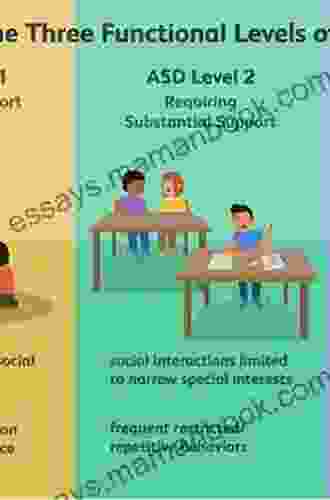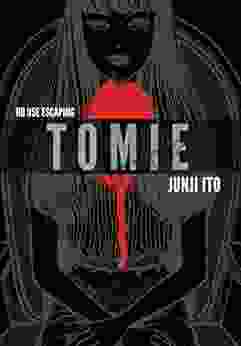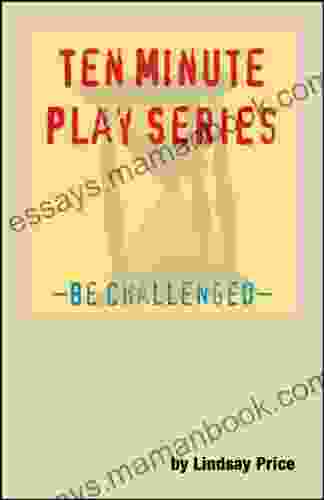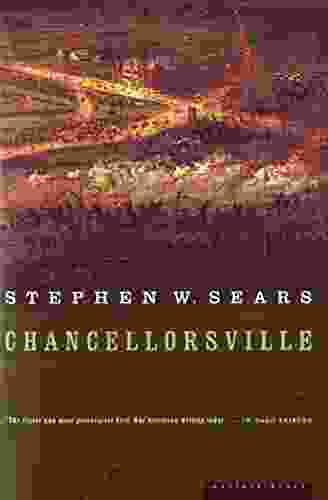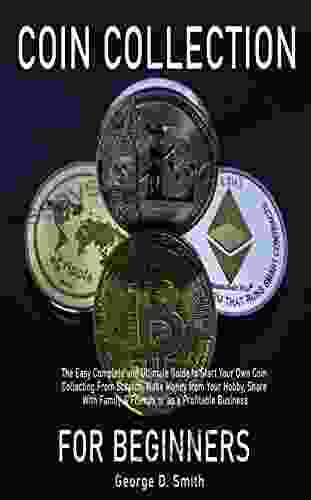Resources For Teachers, Support Staff, and Parents: Essential Guides For Early Childhood Education

4.7 out of 5
| Language | : | English |
| File size | : | 5626 KB |
| Text-to-Speech | : | Enabled |
| Screen Reader | : | Supported |
| Enhanced typesetting | : | Enabled |
| Word Wise | : | Enabled |
| Print length | : | 157 pages |
Early childhood education is a critical stage in a child's development. It is during these early years that children learn the foundational skills they need to succeed in school and life. Teachers, support staff, and parents all play a vital role in providing children with the high-quality early childhood education they need to thrive.
There are a wealth of resources available to help teachers, support staff, and parents provide children with the best possible early childhood education. These resources can help with everything from curriculum development to assessment to behavior management to family engagement.
Curriculum Development
The curriculum is the foundation of any early childhood education program. It outlines the learning goals for children and provides teachers with the activities and materials they need to help children reach those goals.
There are many different types of curricula available for early childhood education programs. Some curricula are based on specific theories of child development, while others are more eclectic. It is important to choose a curriculum that is aligned with the goals of your program and the needs of your children.
The following are some of the most popular curricula for early childhood education:
- HighScope
- Montessori
- Reggio Emilia
- Waldorf
- Play-based learning
In addition to these formal curricula, there are also many informal resources that can help teachers develop their own curriculum. These resources can include books, articles, websites, and lesson plans.
Assessment
Assessment is an essential part of early childhood education. It allows teachers to track children's progress and identify areas where they need additional support.
There are many different types of assessments that can be used in early childhood education. Some assessments are formal, while others are more informal.
The following are some of the most common types of assessments used in early childhood education:
- Observations
- Portfolios
- Interviews
- Standardized tests
It is important to use a variety of assessment methods to get a complete picture of a child's development.
Behavior Management
Behavior management is an important part of early childhood education. It helps children learn how to behave appropriately and interact with others.
There are many different behavior management strategies that can be used in early childhood education. Some strategies are more positive, while others are more negative.
The following are some of the most common behavior management strategies used in early childhood education:
- Positive reinforcement
- Redirection
- Time-out
- Suspension
It is important to use behavior management strategies that are age-appropriate and consistent. It is also important to work with parents to develop a behavior management plan that is tailored to the needs of the child.
Family Engagement
Family engagement is an essential part of early childhood education. It helps children learn and develop by providing them with a supportive and nurturing environment.
There are many different ways to engage families in early childhood education. Some ways include:
- Home visits
- Parent-teacher conferences
- Family nights
- Volunteering
It is important to find ways to engage families that are culturally sensitive and meet the needs of the families in your program.
There are a wealth of resources available to help teachers, support staff, and parents provide children with the best possible early childhood education. By using these resources, you can help children learn and develop to their full potential.
4.7 out of 5
| Language | : | English |
| File size | : | 5626 KB |
| Text-to-Speech | : | Enabled |
| Screen Reader | : | Supported |
| Enhanced typesetting | : | Enabled |
| Word Wise | : | Enabled |
| Print length | : | 157 pages |
Do you want to contribute by writing guest posts on this blog?
Please contact us and send us a resume of previous articles that you have written.
 Top Book
Top Book Novel
Novel Fiction
Fiction Nonfiction
Nonfiction Literature
Literature Paperback
Paperback Hardcover
Hardcover E-book
E-book Audiobook
Audiobook Bestseller
Bestseller Classic
Classic Mystery
Mystery Thriller
Thriller Romance
Romance Fantasy
Fantasy Science Fiction
Science Fiction Biography
Biography Memoir
Memoir Autobiography
Autobiography Poetry
Poetry Drama
Drama Historical Fiction
Historical Fiction Self-help
Self-help Young Adult
Young Adult Childrens Books
Childrens Books Graphic Novel
Graphic Novel Anthology
Anthology Series
Series Encyclopedia
Encyclopedia Reference
Reference Guidebook
Guidebook Textbook
Textbook Workbook
Workbook Journal
Journal Diary
Diary Manuscript
Manuscript Folio
Folio Pulp Fiction
Pulp Fiction Short Stories
Short Stories Fairy Tales
Fairy Tales Fables
Fables Mythology
Mythology Philosophy
Philosophy Religion
Religion Spirituality
Spirituality Essays
Essays Critique
Critique Commentary
Commentary Glossary
Glossary Bibliography
Bibliography Index
Index Table of Contents
Table of Contents Preface
Preface Introduction
Introduction Foreword
Foreword Afterword
Afterword Appendices
Appendices Annotations
Annotations Footnotes
Footnotes Epilogue
Epilogue Prologue
Prologue James Maxwell
James Maxwell Steve Healey
Steve Healey Richard Baldwin
Richard Baldwin Mark Sullivan
Mark Sullivan Magdalena Wszelaki
Magdalena Wszelaki Jennifer Block
Jennifer Block Edmund Spenser
Edmund Spenser Stephen Mcnamee
Stephen Mcnamee Adele
Adele Ian Oliver Jones
Ian Oliver Jones Lawrence F Katz
Lawrence F Katz Cheryl Gavrielides
Cheryl Gavrielides Latoya Nicole
Latoya Nicole Peter Afflerbach
Peter Afflerbach Maureen Howard
Maureen Howard Steve Hedgpeth
Steve Hedgpeth Rania Batayneh
Rania Batayneh Heather Hathaway
Heather Hathaway Bonnie Belden Doney
Bonnie Belden Doney Darrell Morris
Darrell Morris
Light bulbAdvertise smarter! Our strategic ad space ensures maximum exposure. Reserve your spot today!

 Robert BrowningUnlock the Secrets of the Faraway Castle: An Enchanting Box Set for Readers...
Robert BrowningUnlock the Secrets of the Faraway Castle: An Enchanting Box Set for Readers... Allen GinsbergFollow ·13.7k
Allen GinsbergFollow ·13.7k William PowellFollow ·19.7k
William PowellFollow ·19.7k Cooper BellFollow ·2.9k
Cooper BellFollow ·2.9k Beau CarterFollow ·5.6k
Beau CarterFollow ·5.6k Aubrey BlairFollow ·5.9k
Aubrey BlairFollow ·5.9k W. Somerset MaughamFollow ·6.8k
W. Somerset MaughamFollow ·6.8k John ParkerFollow ·8.5k
John ParkerFollow ·8.5k Phil FosterFollow ·12.4k
Phil FosterFollow ·12.4k
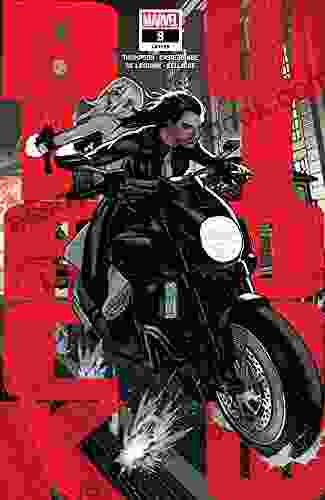
 Dean Butler
Dean ButlerBlack Widow 2024: A Comprehensive Guide to Kelly...
In 2024, Marvel...
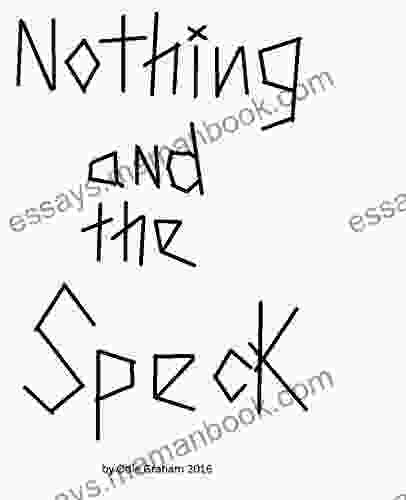
 Gage Hayes
Gage HayesNothing and the Speck: An In-Depth Analysis of Yana...
Yana Toboso's works, particularly the manga...
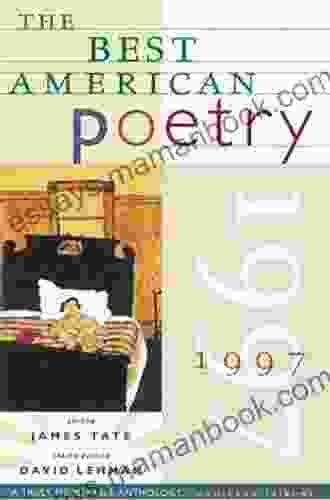
 Stan Ward
Stan WardThe Best American Poetry 1997: James Tate
The Best American Poetry...

 Corey Green
Corey GreenThe Chance of Home: Exploring the Poetic Landscape of...
Immerse yourself in the evocative world of...
4.7 out of 5
| Language | : | English |
| File size | : | 5626 KB |
| Text-to-Speech | : | Enabled |
| Screen Reader | : | Supported |
| Enhanced typesetting | : | Enabled |
| Word Wise | : | Enabled |
| Print length | : | 157 pages |


